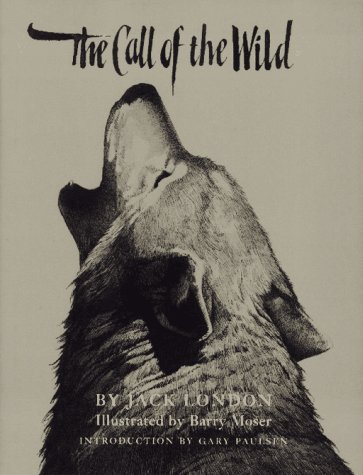 Jack London wrote two books about wolves, and they are the mirror image of each other. White Fang is about a wild animal becoming tame, Call of the Wild is about a tame animal becoming wild.
Jack London wrote two books about wolves, and they are the mirror image of each other. White Fang is about a wild animal becoming tame, Call of the Wild is about a tame animal becoming wild.
Both books are excellent to the point where they are hazardous to have lying around the house. To this day if I see either White Fang or Call of the Wild, I drop what I’m doing, pick it up, and then read through ten or fifty or a hundred pages, caught up once more in the story. These books are hijackers of the brain, and obviously I now keep them far from view.
White Fang is longer and more elaborate, but Call of the Wild is better. It’s spare and lean, like the animals in it, and is paced faster than a modern thriller novel. It’s about a dog named Buck. His upbringing is described in a few pages. Through a stroke of ill fortune, he has found himself on a train bound for the Klondike gold rush, where they need strong dogs with thick coats. Buck’s new home is inhospitable, and it seems he must survive or die. He ends up doing a third thing: transcend.
Books and movies about animals tend to raise public interest in owning said animal as a pet. When Balto come out, children pestered their parents for a pet husky, and no doubt a few unwitting people signed on to become owners of an energetic, destructive animal that needs constant attention and exercise. I don’t think this book would contribute to that problem. Although Jack London often depicts wolves and dogs as noble and romantic, he shows their unpleasant side too. Lex talionis is the order of the day here. Buck is nominally part of a team, but status is everything and he must always be on guard against a sledmate’s fangs in his flank.
There’s not a boring page in the book, from the battles with arch-rival Spitz to mesmerising journeys into the unknown to humorous scenes involving humans. At some point Buck and his team are sold to a trio of comically inept Southerners. Well, it’s only comical at the beginning. Soon dogs start dying under their care, and the laughs stop coming.
Although his creatures are anthropomorphised to a degree, London had a talent in invoking one’s sympathy for animals. The dog Dave is a great example. I was always amazed that London could make me emotionally involved in his plight of a character that doesn’t get a line of dialogue, and only a single identifiable trait (he’s a bit like Boxer in Orwell’s Animal Farm).
The events of the final few pages happen in a blur, and then Buck embraces his destiny. His fate may not seem realistic, but that may be our pitiful prefrontal cortexes talking. Call of the Wild is a book about the deceptiveness of evolution. There’s no “advanced” or “less advanced” in the natural kingdom, and our civilisation just represents a series of adaptations that have proven useful in certain circumstances. Buck adapts in a totally different direction: his environment calls for him to become a primitive creature, and so he becomes a primitive creature. No human in reality or fiction could do what Buck does. We just aren’t wild enough.
No Comments »
Comments are moderated and may take up to 24 hours to appear.
No comments yet.
